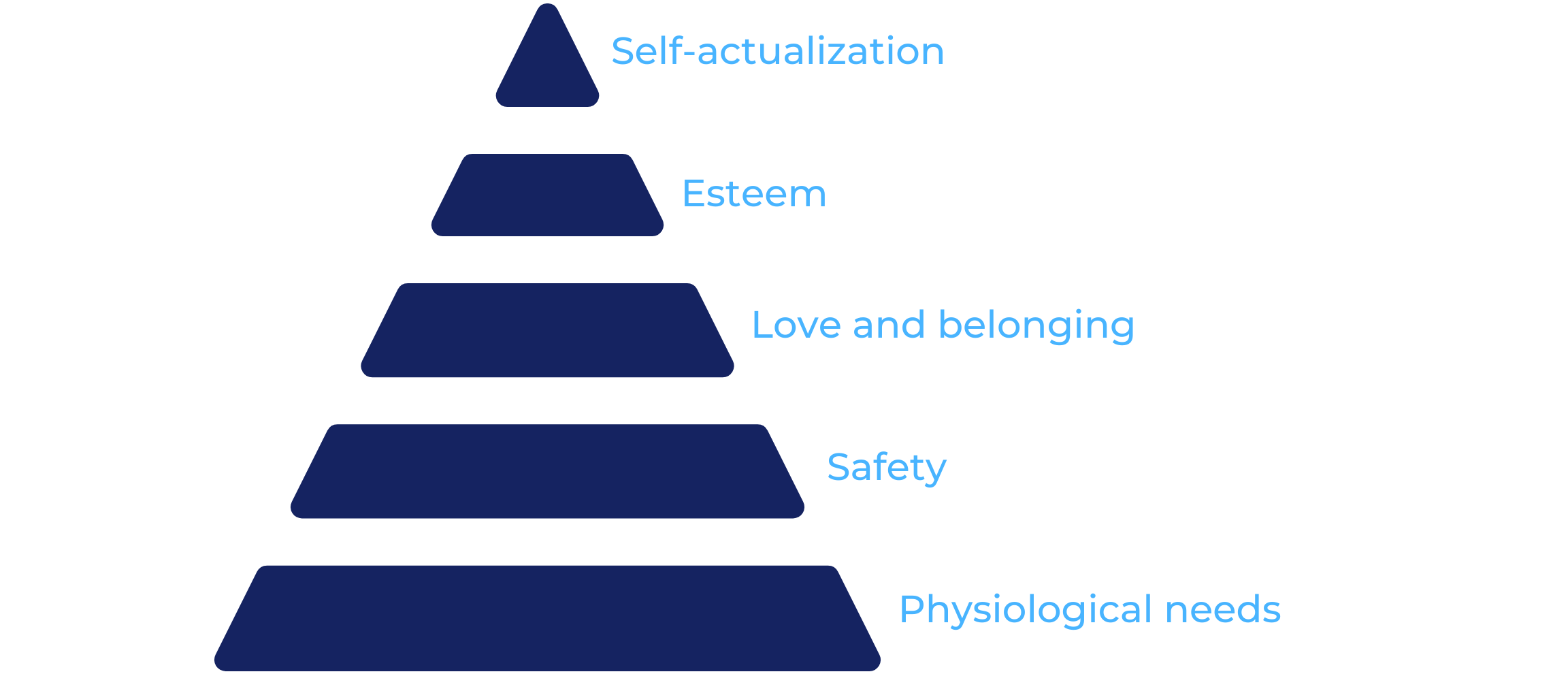Must read: A Psychologist’s Guide To Having Better Relationships
So, what’s the difference between needs and wants? “A want is something you desire or long for as an individual, so it’s specific to you. What you want in life will be influenced by your (cultural) background and personality, in contrast to your needs that are universal and therefore the same for everybody. Something that you want isn’t necessarily something you need to survive, for example a new phone, a different job, or a second winter coat.”
So, are wants less important than needs?
Absolutely not, says Eva. “It’s important to know what you want and to work towards these things. This gives you motivation and energy and you derive satisfaction from that. It’s also important to know what the distinction is here, so that you can direct your focus and energy towards the things you need and then towards the things you want.”
Being able to make this distinction can also help you to get things into perspective, for example if you don’t know (exactly) what you want. Eva: “You often feel very disappointed when you don’t get what you want. It helps to take a step back and ask yourself: Do I really need this? Is there maybe an alternative I could consider?”
The difference between wants and needs in a relationship
In a relationship, there’s also a difference between wants and needs. “A need is something that is required to make a relationship work in the long term, while a want is something we’d like to see or get from our partner, and it doesn’t necessarily need to be fulfilled in order to have a successful relationship,” explains Eva.
Here it’s also important to be aware of the differences. “Confusing needs and wants can put an unnecessary amount of strain on a relationship. Consider a phrase like: ‘I want you to tell me you love me’. You’d like to hear these words (a want), although the need underlying this is needing to feel loved and to experience affection or connection. This need doesn’t necessarily have to be fulfilled with these exact words, there are lots of other ways.”
In every relationship there are a number of basic needs
In order to live happily together for a long time, we need to make sure our basic needs are at least being met, but what are these? “Affection is an important basic emotional need,” says Eva.
“You can show affection with words, physical touch or gestures. Acceptance and validation are also important. As are safety, trust, autonomy, empathy, and understanding.”
We’re of the opinion that these basic relationship needs are all important. However, depending on the situation, certain needs have to be emphasised. Eva: “In turbulent times, we mainly look for safety and connection in a relationship. However, when we’re feeling safe and well, we might need more autonomy.”
Communicating your relationship needs and wants is essential
Although our needs are universal, the way we want them to be fulfilled may vary from person to person. And the situation or phase of the relationship will play a role. Our wants are also dynamic and constantly changing. This means it’s essential to communicate well, so that you can make sure you stay on the same page.
Eva: “Romantic books and movies sometimes give you the impression that everything just falls into place and that you’ll automatically understand each other in a relationship.
Including the other person’s relationship needs and wants. But this is rarely the case. You can’t read each other’s minds. Nobody can do that. What’s more, we’re all individuals with different personalities and backgrounds and this means we all have different views about relationships.”
Top tip: A lovely book that explains the different ways we can show and understand love and affection is ‘The 5 Love Languages‘ by Gary Chapman.
So, the message is, keep talking to each other. In addition to improving how well you understand each other, communicating with your partner is also a good way to connect and to get to know the other person better.
Read also: Do You Feel Insecure in your Relationships? Here’s What You Can Do
How to get what you need in a relationship
If you want to talk about your wants and needs, you first need to really know what you want. Then it all comes down to the moment, the setting, and the way that you communicate. How can you do this well?
1. Know what you want to say
Eva: “First it’s really important to properly explore and figure out your wants and needs. Can you distinguish between the things you really need in your relationship and those that you want? Which needs underlie your wants; what’s going on at a deeper level?”
A real-life example: “A client of mine was always triggered when her partner left her waiting, even if it was only for a few minutes. At first, he found that difficult to understand because: what difference does a few minutes make?
But when she thought about this more deeply, she realised it gave her the impression that her time wasn’t as valuable as his. By really feeling and exploring this, she better understood her need to feel valued and that helped her to discuss this properly with her partner.”
When doing this, don’t just think about what you don’t like or what’s missing in your relationship, but also reflect on the things you do like. Eva: “When do you feel grateful, loved or appreciated?
This will give you insight into what you maybe want more of and what is working for you (and your partner). When you come at it from a positive angle, this topic also becomes more pleasant to broach.”
2. Choose a good moment for the conversation
“Timing is important, but it’s not always easy to find the right moment. It’s good to have the conversation when you both have plenty of space to talk about it. After all, these topics are essential to your relationship. You don’t want to just squeeze the conversation in amongst your daily chores.
It helps to let your partner know in advance that you want to have a good talk and why. For example, to get closer to each other and to strengthen the relationship. Consciously schedule in time for this. Make sure that you’re having the conversation in a place where you both feel comfortable and that you have enough headspace to really listen to each other.”
3. Communicate openly, curiously, and respectfully
“Needs and wants deserve to be vocalized in a situation where both parties feel safe and comfortable. Be curious, understanding, and put yourself in the other person’s shoes. How will your partner feel about hearing your needs and wants? What’s going on with them? How can the two of you get closer to each other?
You’re talking about your wants and needs because you want your relationship to succeed and for both of you to feel good. So, aim for a non-confrontational or non-accusatory communication style; talk about what you need instead of saying what is wrong with the other person.
Top tip: The book ‘Nonviolent Communication‘ by psychologist Marshall Rosenberg teaches you to say what you want and to listen to what the other person is saying. A valuable and also practical book.
The fact that your wants and needs are not being met (yet) doesn’t necessarily mean that there’s something wrong with your relationship. There’s a good chance that your partner isn’t aware of what’s going on inside your head.
Go into the conversation with the assumption that your partner – not just you – has the best of intentions and that they want the best for your relationship. That’s a wonderful foundation for a good, respectful conversation and it maximises your chance of achieving a positive outcome.”
These tips can help you handle difficult conversations: How to Have a Difficult Conversation with Somebody
“We’ve already seen that needs can be fulfilled in a variety of ways and that everybody is different, so take that into consideration when having these conversations. Be curious, listen closely and keep an open mind. That’s the only way to get closer to each other.”
It’s always worth taking the time to understand each other when you’re in a relationship. That applies to any relationship. Do you feel like you could use some help and would you like to reflect on things with someone outside the situation? Then schedule a consultation with one of our psychologists.






